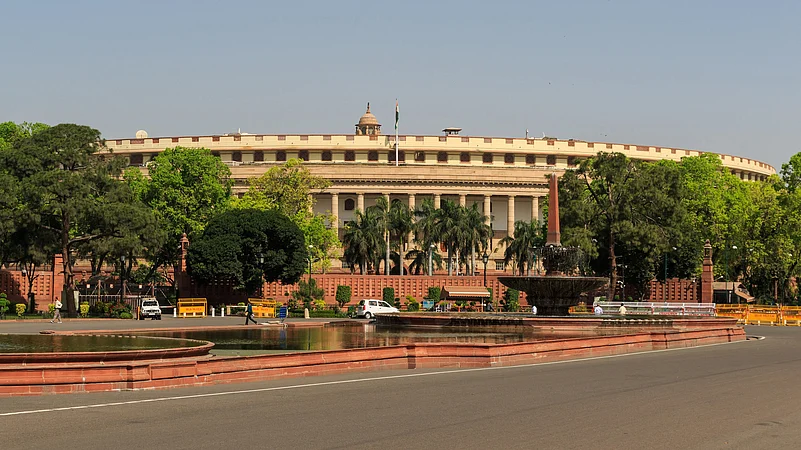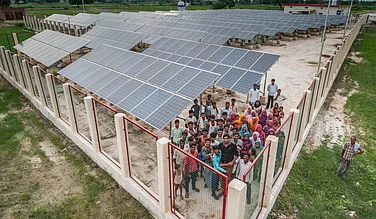
Lok Sabha passes revised Income Tax Bill, 2025 without debate.
Key changes include tax refund relief, nil certificates, and pension deductions.
AMT relief for LLPs restored, avoiding higher levy on LTCG income.
Tax benefits for charitable trusts reinstated, allowing reinvestment of capital gains.
The new Income Tax Bill, 2025 that was introduced in the Lok Sabha was passed on Monday, without any debate. The bill was reintroduced in the Parliament, just days after the new Income Tax Bill was formally withdrawn, the one that was originally introduced in the Lok Sabha on February 13, 2025.
In the revised version, the government added “almost all of the recommendations of the Select Committee”. Additionally, suggestions have been received from stakeholders about changes that would convey the proposed legal meaning more accurately.
Introducing the bill, Union Minister of Finance Nirmala Sitharaman said that the bill seeks to consolidate and amend the law relating to income-tax and will replace the Income Tax Act, 1961.
The House also approved the Taxation Laws (Amendment) Bill, 2025, which grants tax relief under the new Unified Pension Scheme, extends benefits to Saudi Arabia’s Public Investment Fund and clarifies block assessment rules following tax searches.
Both the bills will now move to the Rajya Sabha for consideration and will become law upon receiving Presidential assent.
What are the New Changes?
One of the key changes is the relief over tax refunds. From now, taxpayers can claim refunds even in case of late filing of returns.
Additionally, there will be no financial penalties in case of late filing of TDS.
Taxpayers who don't have tax liabilities, i.e., they don't pay income tax, can now claim 'nil certificates' in advance. This is applicable to both Indian and non-resident taxpayers.
In addition to that, there will be an explicit (in the earlier draft it was an implicit mention) tax deduction for commuted pension, lump sum pension payments, for certain taxpayers. This will be applicable to those receiving pensions from specific funds, such as the LIC Pension Fund.
Another notable change has been in case of the inter-corporate dividend, NDTV reported. Basically, deductions for inter-corporate dividends, i.e., dividends a company receives from shares held in another company, has been reinstated as under Section 80M.
In the earlier draft of the new Income Tax Act introduced in Februaty, this provision had been omitted, mainly for companies opting for the 22 per cent corporate tax regime, i.e., similar to private individuals, corporates were given a lower tax rate if they opted to forego certain exemptions. The omission resulted in worries over double taxation in multi-tiered company structures.
In order to calculate tax on income from house properties, the standard deduction was set at 30 per cent, as determined under Section 21. However, now the interest payable on borrowed capital to buy, build, repair a property will also be deducted.
As per the old law, in case of rental property lying vacant for all or part of a year, the annual value of the house (on which tax would be calculated) was based on 'reasonable expected rent' or actual rent received (for part of the year) as long as it is less than the 'reasonable' rent. The new law however says that this valuation will be based on the higher of two totals - 'reasonable expected rent' or actual rent received / receivable, if the property or any part of it is let.
Alternate Minimum Tax Reliefs for LLPs Restored
The Centre also corrected an earlier drafting error, reinstating relief from the alternate minimum tax (AMT) for partnership firms and limited liability partnerships (LLPs) under the revised Income Tax (No. 2) Bill, 2025.
According to a Business Standard report, the AMT levied at 18.5 per cent plus cess and surcharge for non-corporate taxpayers, is intended to ensure high earners cannot fully offset their tax liabilities through exemptions. On the other hand, LLPs with only long-term capital gains (LTCG) income are taxed at 12.5 per cent.
The previous version of the Bill had removed a critical reference to Chapter VI-A deductions in the AMT provisions for LLPs. This would have exposed LLPs — including the ones earning only LTCG taxed at 12.5 per cent — to the higher AMT rate of 18.5 per cent plus cess and surcharge. As per the revised draft, this reference in Clause 206 has been restored. This ensures that the AMT applies only when total income is reduced by such deductions, consistent with the original intent.
The Select Committee did make more than 285 recommendations but it did not propose altering the AMT framework for LLPs as contained in the first version of the Income Tax Bill, introduced in February. According to the Bill’s statement of objects and reasons, the government incorporated stakeholder suggestions to convey the proposed legal meaning more accurately, including “corrections in the nature of drafting, alignment of phrases, consequential changes and cross-referencing”.
One of the recommendations by the Select Committee has however been dropped. This would have enlarged transfer pricing scrutiny by allowing a company to be treated as an “associated enterprise” if it exercised “substantial influence” over another, even without meeting current shareholding or board control thresholds, Business Standard reported. Additionally, the provision would have brought a larger set of inter-corporate transactions under transfer pricing rules, which are designed to ensure that related-party dealings reflect market value and prevent profit shifting.
According to Dinesh Kanabar, CEO at Dhruva Advisors, the earlier draft risked introducing subjectivity. According to him,“The earlier Bill proposed that two ‘enterprises’ would be regarded as associated if at any time during the year there was common management or control, irrespective of the Act’s specific definitions. It is now provided that only in specified circumstances will management and control be deemed common, and the test applies as at the end of the year. This removes subjectivity and the litigation that goes with it.”
What Else Was Restored?
As per the latest version of the Income Tax Bill, key tax benefits have also been restored for charitable and religious trusts. It also mentions a provision that allows such entities to reinvest capital gains in new capital assets to claim exemption, as well as the option to apply unspent income in the immediately succeeding year without losing tax benefits.
A senior Central Board of Direct Taxes official said, “If a charitable or religious trust sells a capital asset – such as land, buildings, shares -- and makes a capital gain, it can avoid paying tax on that gain if it reinvests the proceeds in another capital asset for its charitable purposes. This treatment already existed under the Income-tax Act, 1961, and the new Bill retains the same rule.”































